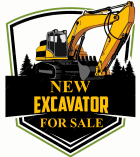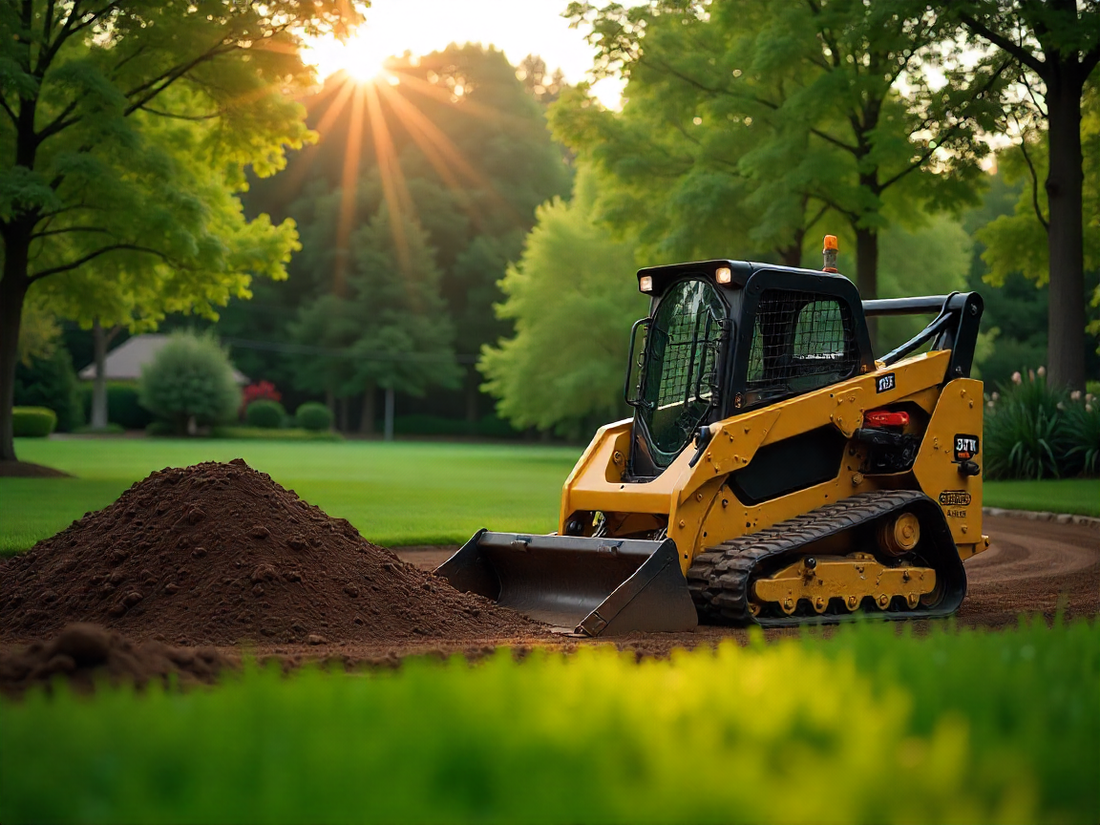Starting a landscaping business requires the right tools. Your equipment choices impact your efficiency, your capabilities, and your profit. This blog provides you with a guide on the essential machinery you need to start. We will give you a practical guide for choosing equipment that fits your budget and your business needs. Investing wisely from the start avoids costly upgrades later.
A mini excavator often serves as the central machine for a new landscaping operation. Its versatility makes it indispensable. You will use it for digging, trenching, lifting, and grading. Selecting the right one is critical.
The Core Machine: Choosing a Mini Excavator
Your mini excavator is a long-term investment. Consider its size, features, and cost. The right machinery manages your most common jobs without sacrificing your budget.
Operating weight determines the machine's stability and power. Smaller models, around 1 to 1.5 tons, are highly maneuverable. They fit through residential gates. They work well for small planting beds, light trenching, and confined spaces. Larger models, in the 3 to 5 ton range, offer more digging force and depth. They handle larger projects like pond excavation or significant grading. Choose a size based on your target clients. Residential work needs a smaller machine. Commercial sites may require a larger one.
Tail swing radius defines where you can work. A zero-tail-swing excavator allows you to operate in very tight spaces. You can work next to fences, walls, and buildings without worrying about the rear end hitting anything. This feature costs more. A standard tail swing machine requires more operating space. It is also less expensive. For urban and residential landscaping, a zero-tail-swing machine saves time and prevents damage.
Key features separate basic models from professional tools. A hydraulic thumb is not a luxury. It is a necessity for grabbing rocks, logs, and other materials. Some brands include it standard. Others charge over one thousand dollars extra. An enclosed cab with climate control allows you to work in extreme heat or cold. This improves operator comfort and productivity. Consider auxiliary hydraulics. They allow you to power attachments like augers or brush cutters. This expands your machine's functionality.
Other Essential Landscaping Equipment
A mini excavator cannot do every job. You need a suite of tools to complete your services.
A compact utility loader is another versatile tool. You can use it for grading, moving soil, and digging. Its small size is ideal for projects where an excavator is too large. Many models accept various attachments. These include trenchers, breakers, and soil conditioners.
A durable trailer is non-negotiable. You must transport your equipment to job sites. A tandem-axle trailer provides better stability and weight capacity than a single-axle model. Ensure your trailer's weight rating exceeds the combined weight of your excavator and any other equipment you carry.
Hand tools remain fundamental. Your crew needs high-quality shovels, rakes, pruning shears, and rock bars. Do not buy the cheapest options. They break quickly. Invest in professional-grade steel tools. They last longer and perform better.
A reliable truck is your business's backbone. You need a vehicle capable of towing your loaded trailer. Check the truck's gross vehicle weight rating and towing capacity. A half-ton truck may suffice for a small excavator. A three-quarter-ton or one-ton truck is often a better choice. It provides a safety margin for payload and towing.
Planning Your Equipment Purchases
Your budget dictates your initial purchases. You must make strategic choices.
Buy your core machine new if possible. A new mini excavator comes with a warranty. It minimizes downtime from repairs. Financing spreads the cost over time. If you buy used, inspect the machine thoroughly. Check the hydraulic cylinders for leaks. Look for wear on the undercarriage. Ask for maintenance records.
Rent before you buy. Renting a specific mini excavator model gives you hands-on experience. You learn if it fits your workflow before making a large financial commitment. Rent specialized attachments for unique projects. This is cheaper than buying an attachment you rarely use.
Focus on versatility early on. A bucket and a hydraulic thumb are your most-used attachments. You can accomplish most basic tasks with them. As your business grows, add more specialized attachments. A tilt grader blade is useful for fine grading. An auger digs holes for fencing and planting.
Building Your Business with the Right Tools
The right equipment enables you to take on more profitable jobs. A mini excavator with a thumb lets you offer rock wall installation. A grading blade lets you offer precision leveling for patios and walkways.
Your equipment also markets your business. Clean, well-maintained machinery presents a professional image. It tells clients you are serious and reliable.
Maintain your equipment diligently. Follow the service intervals in the user manual. Grease parts regularly. Keep tracks clean and properly tensioned. Good maintenance prevents costly repairs, and resale value remains high.
Choose equipment that grows with you. A too-small machine limits your job potential. A too-large machine strains your finances. The right mini excavator serves as a reliable partner for building your landscaping business from the ground up.

